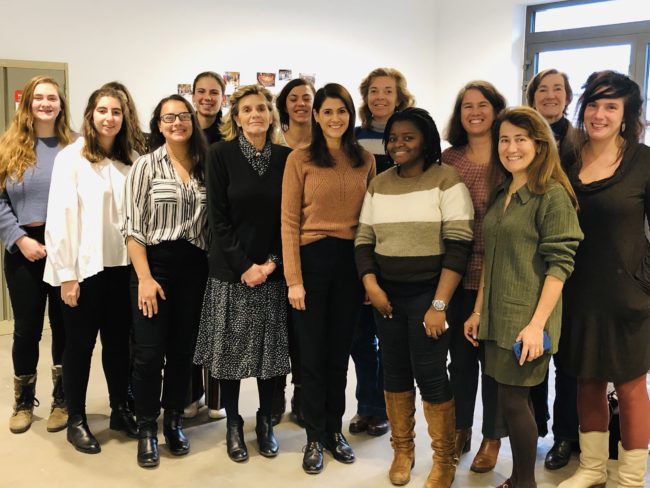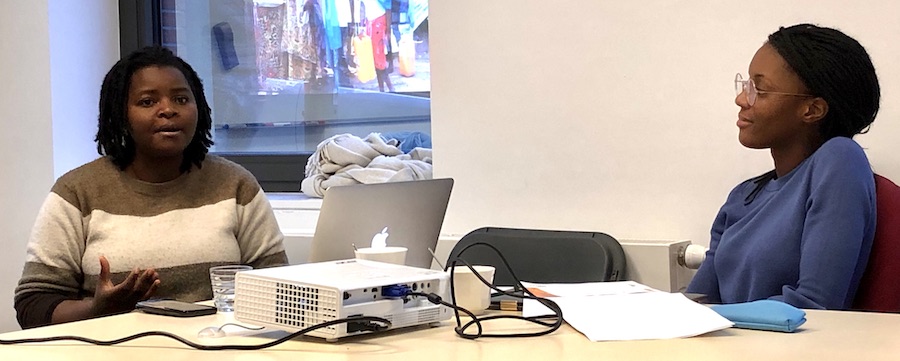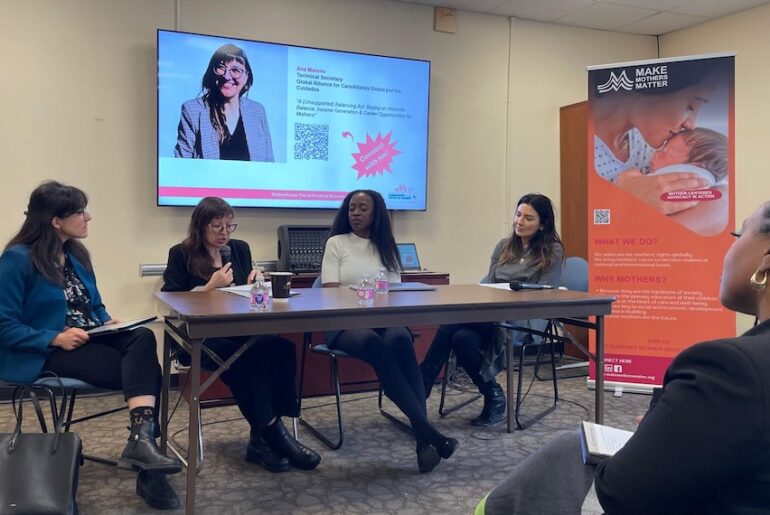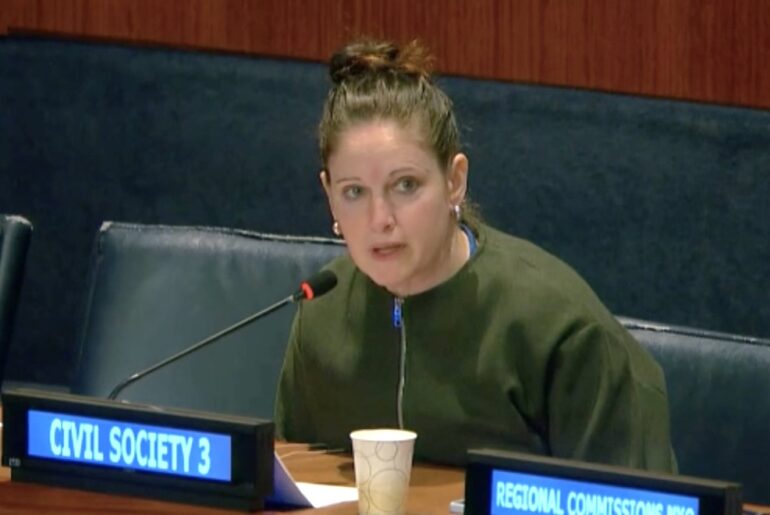Women must participate in peace processes – at every step and every level
18.11.19
15th November, Brussels - The 3rd MMM ESPERAS Peace Lab brought together two keynote speakers Professor Christina Bache and women’s rights activist Passy Mubalama who through their expertise offered two complementary examples - academic and grassroots - of the important role of women and mothers in peace.

Professor Christina Bache, author of the 2019 EU commissioned study: ‘Women’s role in peace Process’ is a visiting fellow from London’s LSE Ideas. She lives in Brussels where she is also adjunct professor at Vesalius College.
She underlined the necessity for the inclusion of women throughout the peace process. “People are failing their communities if this is not taken into consideration,” she said. “Women should be negotiators, observers and even signatories.”

From left to right: Laurence van Abeele, President of MMM Belgium and partner of Esperas, with Leen van Waes from Esperas, and students
She explained that women are active in grassroots organizations and as such, their voices are critical, because they represent the diversity within their communities. They have a role to play: they are engaged in dialogue, as community leaders.
And as mothers, they have above all else, a crucial responsibility to educate their children in a non-violent way.
Passy Mubalama, who lives in Goma in the Democratic Republic of Congo, provided the grassroots perspective. She was in Belgium to receive her ‘Changemaker’ award from the 11.11.11 coalition of NGOs, unions, movements and various solidarity groups in Flanders (Dutch-speaking Northern part of Belgium) who work together to achieve one common goal: a fair world without poverty.
Passy passionately believes that women should not be seen as victims but rather, as agents of change.
To facilitate her work, she set up Aidprofen, an organization that promotes education for women in her country and calls for more of them to actively participate in politics.
See also another article on Esperas and its projects here

Passy Mubalama, founder of Aidprofen in DRC, with Myriam Mitu, a volunteer for Esperas
Time Poverty and the Motherhood Penalty
Unveiling Economic and Social Injustices
09.07.24
Mothers play an essential role in families by ensuring their loved ones are nourished, educated, and healthy, but their unpaid care work often leads to economic and social injustices, known
Envisioning care as a common thread to global crises
29.07.24
UN New York - Our virtual HLPF side-event brought together experts to shed light on how the various global crises we face (in particular climate change and other environmental crises,
We call for multi-stakeholder approach to recognise and support unpaid care work
21.07.24
UN New York - Participating in the meeting of the UN Economic and Social Council (ECOSOC) on care and support systems, MMM reaffirmed the principle of co-responsibility, which should underpin








